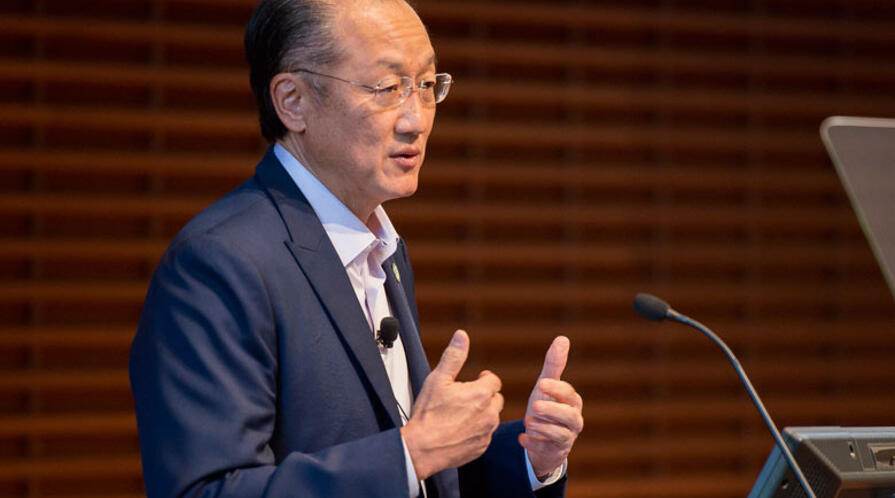Informal Capacity and California Local Government Responses to COVID-19
Argument and Contribution
At the national level, the United States struggled to effectively respond to the COVID-19 pandemic: federal policy was delayed and inconsistent, supply shortages were widespread, and political pressure undermined accurate public health guidance. At the state and local levels, however, there was a great deal of variation in terms of the capacity to respond to COVID. While indicators of state capacity often focus on “formal” indicators like institutional resources, staffing, and finances, translating formal capacities into effectively implemented policies is neither a simple nor an automatic process.
In “Building the Plane While Flying,” Didi Kuo and Andrew S. Kelly draw our attention to the importance of informal indicators of public health capacity. These include strong relationships within and across government agencies, the embeddedness of health officers in local communities, and prior experience with responding to disasters, among other factors. The authors argue that local governments with strong informal capacity were better able to communicate with and learn from one another, as well as to gain the trust of community members, during the pandemic. Conversely, localities with otherwise strong formal capacities often failed to respond to the challenges at hand. This is because they were unable to effectively leverage their relationships and organizational networks.
Kuo and Kelly’s paper is informed by qualitative analysis of California’s public health institutions as well as in-depth interviews with health officers across seventeen Northern, Central, and Southern California counties. The interviews illuminate the concrete processes by which local governments responded (or struggled to respond) to the COVID-19 pandemic. One of the paper’s key contributions is to push us to conceptualize state capacity more broadly and to focus on the factors that drive not just policy development, but policy implementation.
The Importance of Informal Capacity
The bulk of the paper disaggregates informal capacity into its various mechanisms and processes. Each of these proves to be crucial in explaining different pandemic outcomes at the local level. One such mechanism is coordination within local governments. To illustrate this, consider public health officers, who enjoy broad legal powers to protect public health as well as financial resources and personnel at their disposal. By law, officers possess significant capacities to mitigate health crises. Yet across the interviews, health officers reported that effectively implementing COVID-19 policy required their cooperation and communication with a host of actors, including the County Counsel (the county’s top lawyer), Chief Administrative Officer, and Board of Supervisors, which is charged with appointing health officers.
Closely related to intra-governmental coordination is the importance of autonomy, particularly in the face of political pressure. For example, boards of supervisors sometimes undermined the public guidance provided by health officers. (This guidance could range from the need to close schools to officers simply communicating truthfully with localities about COVID-19 risks.) Overcoming efforts by board members to ignore or muzzle officers required coordination between those actors who were more insulated from political pressure.
Another key component of informal capacity was prior experience responding to emergencies and California’s myriad of natural disasters, such as fires, floods, or mudslides. Health officers from more experienced counties noted their ability to draw upon established emergency procedures and partnerships. For example, some counties had previously cooperated with each other, as well as with independent agencies like the Red Cross, to provide aid and shelter to those affected by wildfires. These experiences — for which no amount of financial resources or personnel can substitute — served as templates to help coordinate COVID-19 policy responses.
Informal capacity also depended upon health departments effectively communicating with the public. Many departments initially lacked the infrastructure to do this, and therefore relied on cooperation with other actors like school superintendents, sheriffs, and community leaders. Some counties created toolkits to improve their community’s understanding of personal protective equipment (PPE) or even produced local TV shows. Still others scheduled conference calls with local hospitals, faith leaders, and nursing homes. Given that many of these communication efforts were improvised, public health officers stressed the importance of formalizing coordination between state and nonstate actors so as to improve emergency preparedness in the future.
In addition to coordination within local governments, effective policy-making and communication required coordination across governments. One such institution was the Association of Bay Area Health Officers (ABAHO), founded in the 1980s during the HIV/AIDS epidemic. ABAHO members had also coordinated policy responses to the H1N1 outbreak. These cross-county partnerships enabled early, rapid, and unified responses to the COVID-19 pandemic. By contrast, the authors find that regions without such networks faced greater challenges in developing and implementing public policy.
A final aspect of informal capacity is the social embeddedness of health officials in their communities. This includes partnerships with leaders of businesses and faith groups, teachers, and restaurant owners. Not only did these partnerships increase the scope of outreach, but they also often established relationships that had not existed beforehand. Gaining a foothold in local communities thus increased the likelihood that community members would support policies and enabled local governments to access hard-to-reach populations.
Kuo and Kelly’s analysis of informal capacity should give us pause when considering existing indices of public health preparedness; some of these have ranked the United States quite high despite its often ineffective responses to the COVID-19 pandemic. That this mismatch occurs is arguably a function of observers prioritizing formal capacities. For federal, decentralized countries like the US, informal capacities and relationships are essential not only for delivering services but for generating legitimacy and trust among those receiving services.
*Research-in-Brief prepared by Adam Fefer.

CDDRL Research-in-Brief [3.5-minute read]







